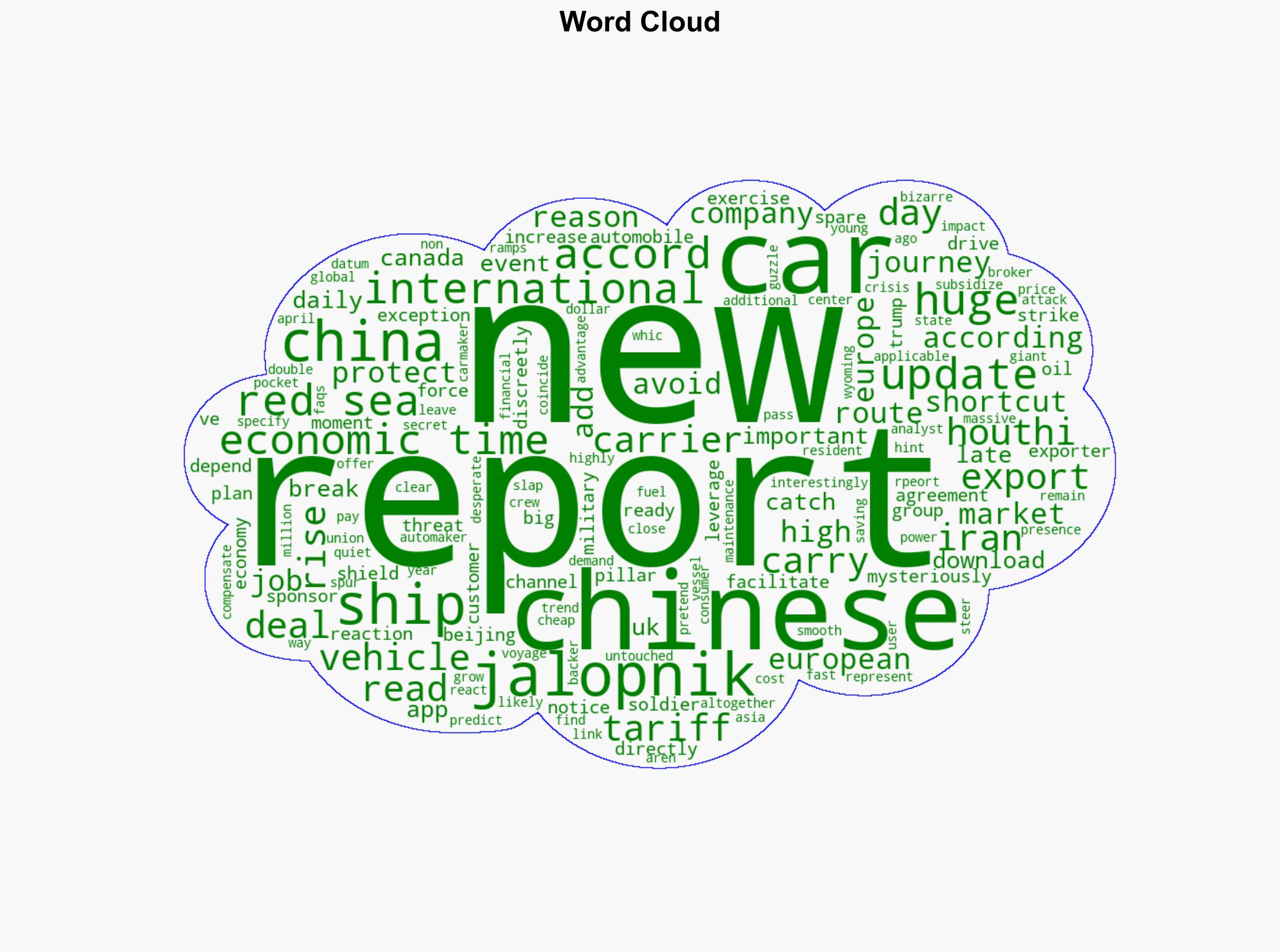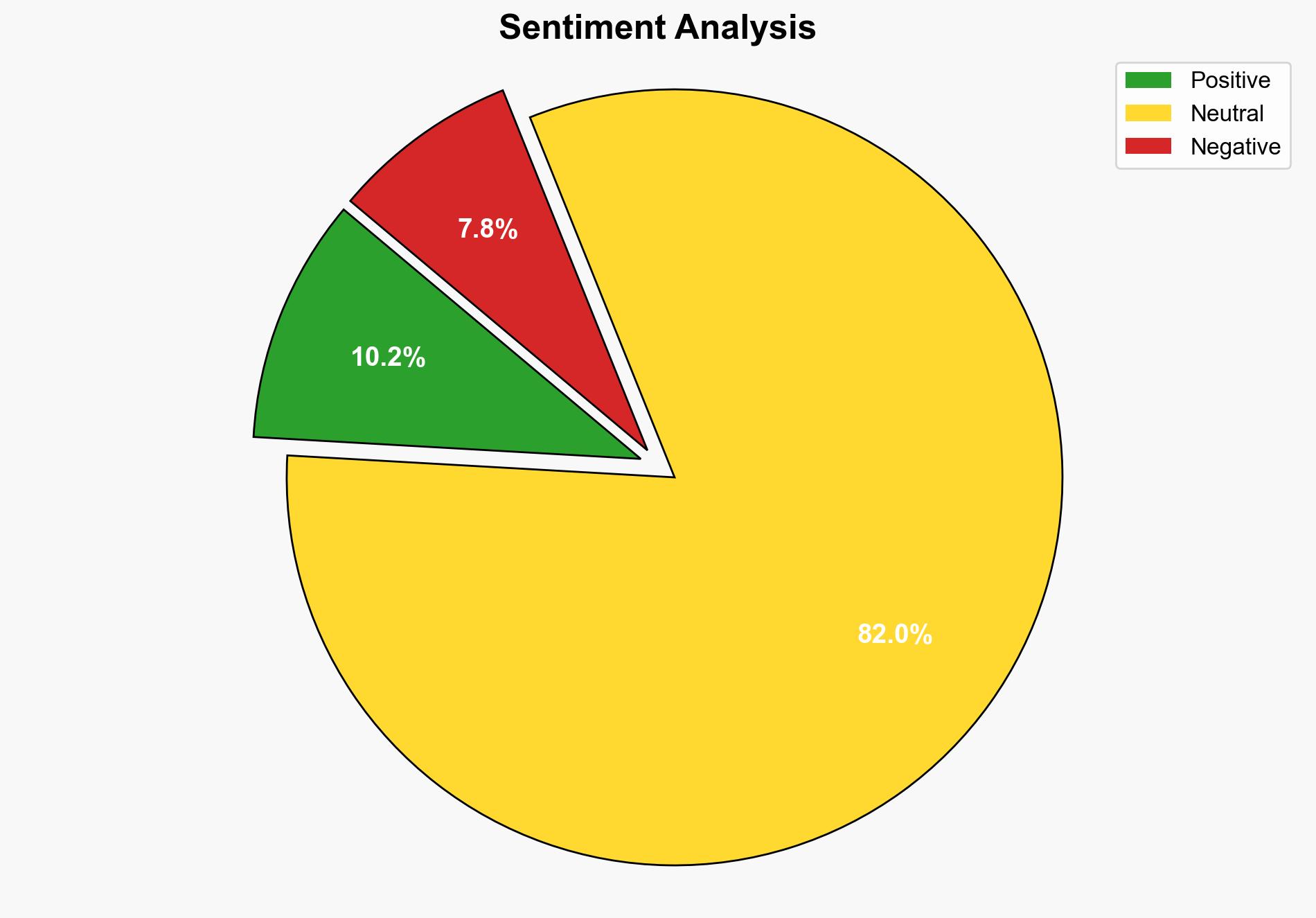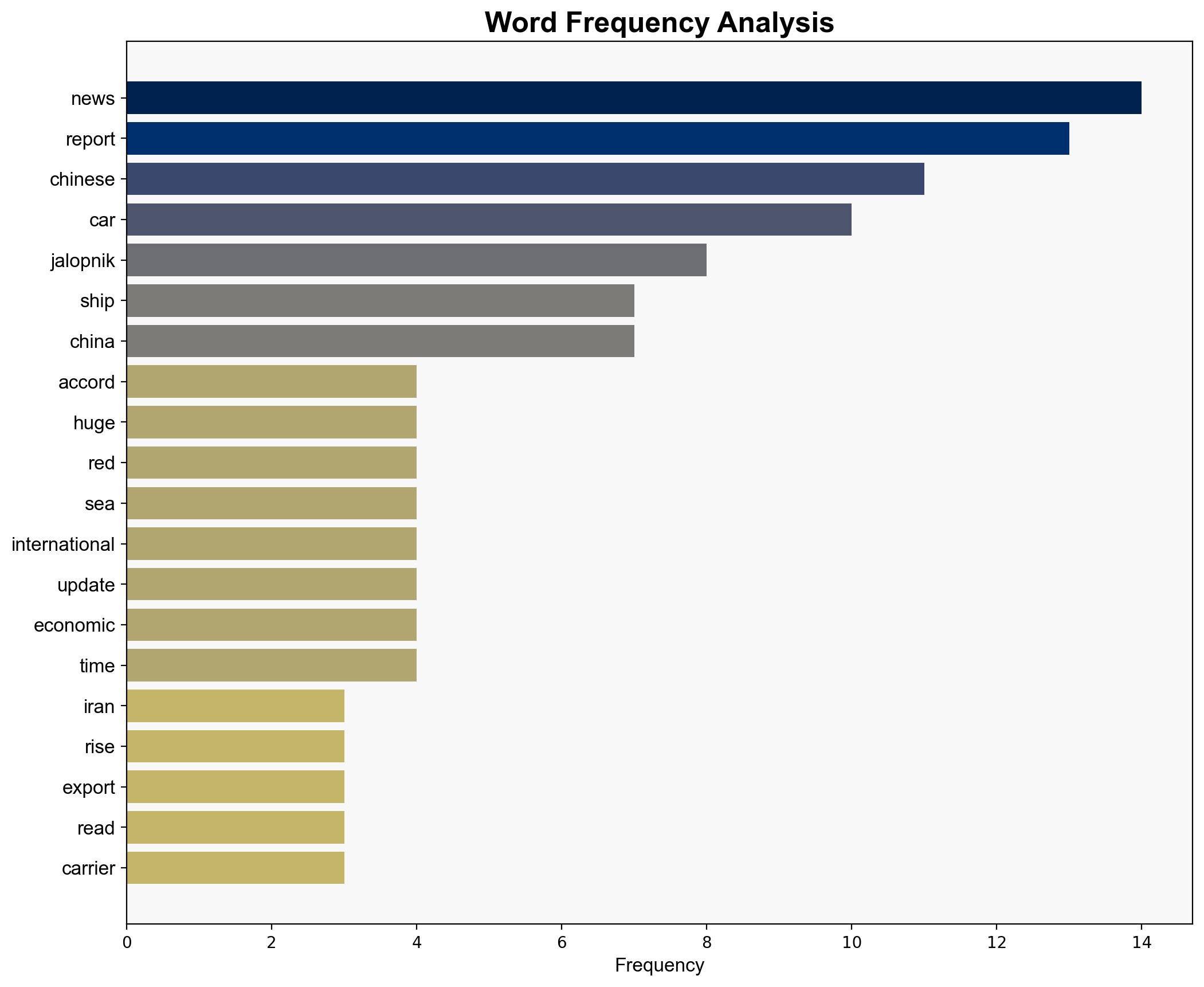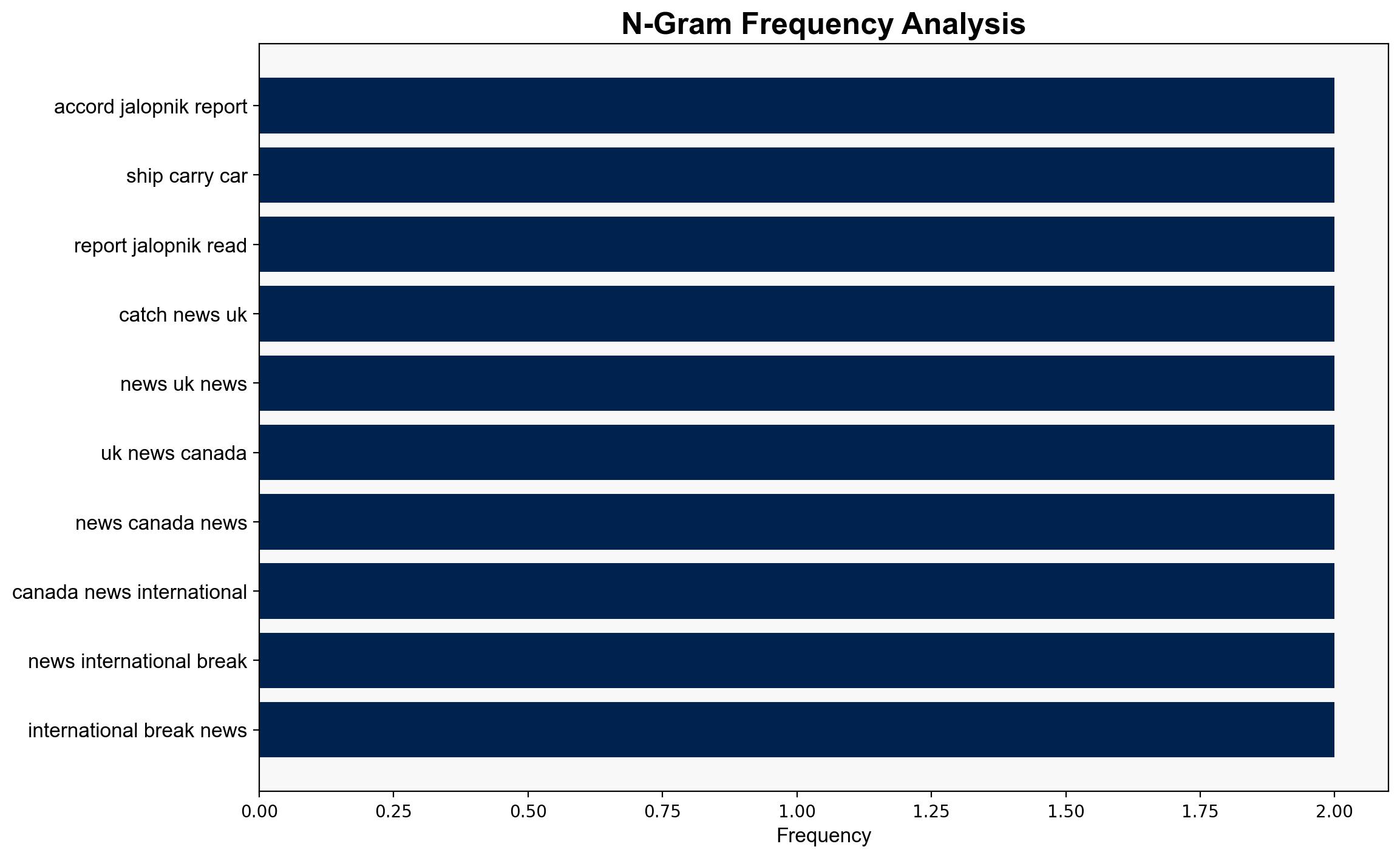Houthis spare Chinese car ships but others arent so lucky – here’s the surprising reason – The Times of India
Published on: 2025-08-12
Intelligence Report: Houthis spare Chinese car ships but others aren’t so lucky – here’s the surprising reason – The Times of India
1. BLUF (Bottom Line Up Front)
The most supported hypothesis is that China has negotiated a discreet agreement with the Houthis, likely facilitated through Iran, to protect Chinese car shipments in the Red Sea. This is strategically motivated by China’s economic interests in maintaining and expanding its automobile exports to Europe. Confidence in this hypothesis is moderate due to the lack of direct evidence but supported by circumstantial indicators. Recommended action includes monitoring Chinese-Iranian communications and Houthi activities for further confirmation and potential shifts in regional maritime security dynamics.
2. Competing Hypotheses
1. **Hypothesis A**: China has brokered a deal with the Houthis, possibly through Iran, to ensure the safety of Chinese car shipments in the Red Sea. This is motivated by China’s economic interests and leverage over Iran due to its oil imports.
2. **Hypothesis B**: The sparing of Chinese ships is coincidental or due to operational limitations of the Houthis, rather than a deliberate strategy or agreement. The Houthis may lack the capacity or intelligence to target all vessels equally.
Using ACH 2.0, Hypothesis A is better supported due to the alignment of China’s strategic interests with the observed behavior, and the plausible influence China holds over Iran, a known supporter of the Houthis.
3. Key Assumptions and Red Flags
– **Assumptions**: Hypothesis A assumes that China has both the capability and intent to negotiate such deals and that Iran is willing to facilitate these negotiations. Hypothesis B assumes a lack of strategic coordination among the Houthis.
– **Red Flags**: The absence of direct evidence of a deal and reliance on circumstantial reports. Potential cognitive bias includes confirmation bias towards China’s strategic maneuvering.
– **Inconsistent Data**: Lack of detailed reports on specific Houthi actions against non-Chinese vessels.
4. Implications and Strategic Risks
– **Economic**: If true, this agreement could solidify China’s position in the European car market, affecting global automotive trade dynamics.
– **Geopolitical**: Strengthened China-Iran ties could alter power balances in the Middle East, impacting U.S. and allied interests.
– **Security**: Increased risk of regional maritime insecurity if other nations perceive bias or favoritism, potentially escalating tensions.
5. Recommendations and Outlook
- Monitor communications and trade patterns between China, Iran, and the Houthis for further evidence of strategic agreements.
- Engage in diplomatic efforts to ensure freedom of navigation in the Red Sea, potentially through multinational naval cooperation.
- Scenario Projections:
- **Best Case**: Increased transparency leads to a regional maritime security agreement.
- **Worst Case**: Escalation of attacks on non-Chinese vessels, leading to broader conflict.
- **Most Likely**: Continued selective targeting with periodic diplomatic tensions.
6. Key Individuals and Entities
– China
– Iran
– Houthis
– Jalopnik (as a reporting source)
7. Thematic Tags
national security threats, regional focus, maritime security, economic strategy





